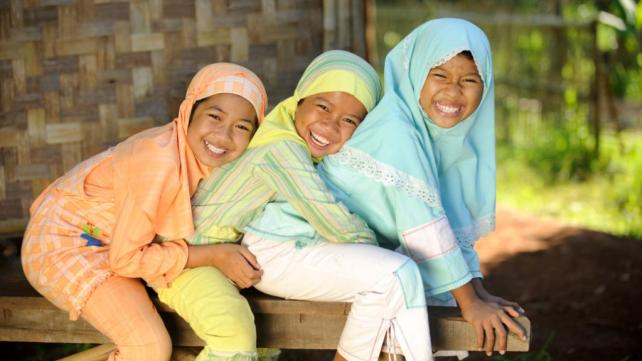
In an era where scrolling has replaced strolling and screen time often overshadows face time, many parents are searching for ways to reconnect their children with the real world—one filled with sunshine, fresh air, and meaningful community bonds. The tug-of-war between the glow of the screen and the light of the sun is no longer metaphorical; it's a growing concern for families striving to raise spiritually grounded children amid digital distraction.
Beyond the Screen: A Deeper Need
Children don’t merely pass time on their devices; they are shaped by them. Social media and entertainment apps are meticulously engineered to capture and retain attention, subtly molding how young minds perceive self-worth, beauty, success, and even relationships. While not evil in themselves, these platforms often encourage passive consumption over active participation, isolation over community, and comparison over contentment.
In stark contrast, the natural world offers an immersive, multisensory classroom—one that awakens the soul rather than numbing it. There’s something inherently sacred about the sun warming your skin, the cool breeze carrying the scent of pine, or the sight of birds soaring freely across an open sky. These moments connect us with our fitrah—the innate spiritual state Islam speaks of—and they resonate with the Quranic invitation to reflect on the signs of Allah:
“And it is He who spread out the earth and placed therein firmly set mountains and rivers; and from all of the fruits He made therein two mates; He causes the night to cover the day. Indeed in that are signs for a people who give thought.”
(Qur’an, Ar-Ra’d 13:3)
A Powwow and a Moment of Awakening
Not long ago, I took my children—ages 9 and 11—to a local Powwow, an Indigenous cultural gathering rich with dance, music, storytelling, and sacred ceremony. In preparation, we studied Native American traditions, especially their deep respect for land, elders, and collective memory.
Our conversations were full of discovery. We marveled at how Indigenous reverence for the earth echoes Islamic teachings about stewardship (khalifah), gratitude, and harmony with creation. At the event, the children watched the dancers moving in circular formations, immediately drawing parallels to the tawaf around the Kaaba—a rhythm of devotion and unity. We tried new foods, engaged in unfamiliar customs, and exchanged smiles with children from diverse backgrounds.
That day became more than just a fun outing—it was a lived lesson. My children weren’t merely learning facts; they were feeling them. The sights, sounds, and spirit of the Powwow sparked questions, connections, and a sense of belonging that no screen could ever offer.
The Prophetic Model: Education That Breathes
The life of the Prophet Muhammad ﷺ offers a timeless model for experiential, community-rooted learning. He taught under the open sky, alongside companions on journeys, beside streams and palm groves—often outside of formal spaces. His example reminds us that education is not just about content delivery but about cultivating presence, reflection, and connection.
True Islamic learning is meant to touch the heart and inform the soul. That happens most powerfully through lived experiences, especially when those experiences happen within nature and community—two essential but often-neglected realms in modern childhood.
Finding and Creating Outdoor Learning Opportunities
You don’t have to wait for a special event to reclaim this lifestyle. There are countless ways to reconnect children with their environment and community—through both attending and organizing activities. Here are some practical ideas:
Attend Local Outdoor Events:
Cultural Festivals: Look for Greek, African, Native American, or Asian heritage festivals featuring food, music, and storytelling.
Farmers’ Markets and Agricultural Fairs: Teach children about sustainability, food systems, and Islamic environmental values (khalifah).
Nature Walks with Purpose: Join or create walks focused on spiritual themes, such as “Signs of Allah in Nature.”
Community Gardens and Clean-Up Days: Foster a sense of stewardship (amana) by participating in or organizing local clean-up events.
Outdoor Library or Museum Programs: Many public institutions offer seasonal, family-friendly cultural programming in open spaces.
Create Your Own Traditions:
- Start a Neighborhood Sports Team: Organize low-pressure games with other families to focus on fun, teamwork, and adab (manners).
- Host a “Picnic Under the Stars”: Invite families for a meal and stargazing, reflecting on ayahs about the heavens and creation.
- Organize Outdoor Islamic Story Circles: Hold weekly gatherings in parks to share Seerah stories and lessons from the Prophets—especially those involving nature.
- Plan a Family Hike with Dhikr: Invite others to join hikes that include short surahs, dhikr, or reflections on gratitude.
- Create a “Souk in the Park”: Encourage children to make and sell crafts or baked goods, fostering creativity, entrepreneurship, and community connection.
- Celebrate Milestones Outdoors: Mark Quran completions, birthdays, or other milestones under the trees with food, duas, and togetherness.
- Set Up a “Creation Walk” Trail: Post ayahs or hadith related to nature along a walking path for families to stop, reflect, and engage spiritually.
Replacing the Feed With Nourishment for the Soul
Screens promise connection but often deliver the opposite. In contrast, outdoor community events foster genuine belonging. They encourage dialogue across cultures, awaken spiritual reflection, and help children find joy in something real, rooted, and resonant. This is how memories are made: not with likes and shares, but with laughter, sunlight, wind, and wonder.
As the Qur’an teaches:
“O mankind, indeed We have created you from male and female and made you peoples and tribes that you may know one another…”
(Qur’an, Al-Hujurat:13)
Let us raise children who know how to look up—to the stars, to the trees, to the people around them. Let us help them build a library of memories drawn from lived moments: the smell of damp earth, the sparkle of starlight, the rhythm of a drum, the warmth of communal prayer on grass. May they grow not just smarter, but wiser—more connected to their Creator, their community, and the Earth beneath their feet.
////////////////
Author bio: Miriam Mohamed is a mother to seven children and a granny to two cats! She loves trying new things and learning cool facts. She has taught in an Islamic school setting, has experience assisting children with special needs, and enjoys volunteering and being a part of the community. Miriam lives in Chicago with her beautiful flowering cherry tree and big family.

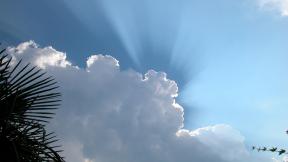
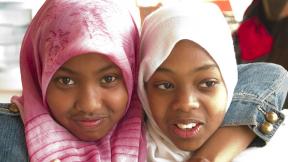
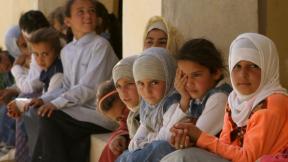
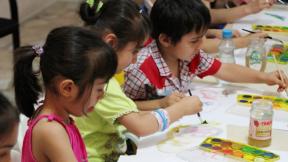
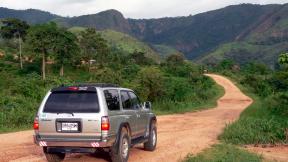


Add new comment